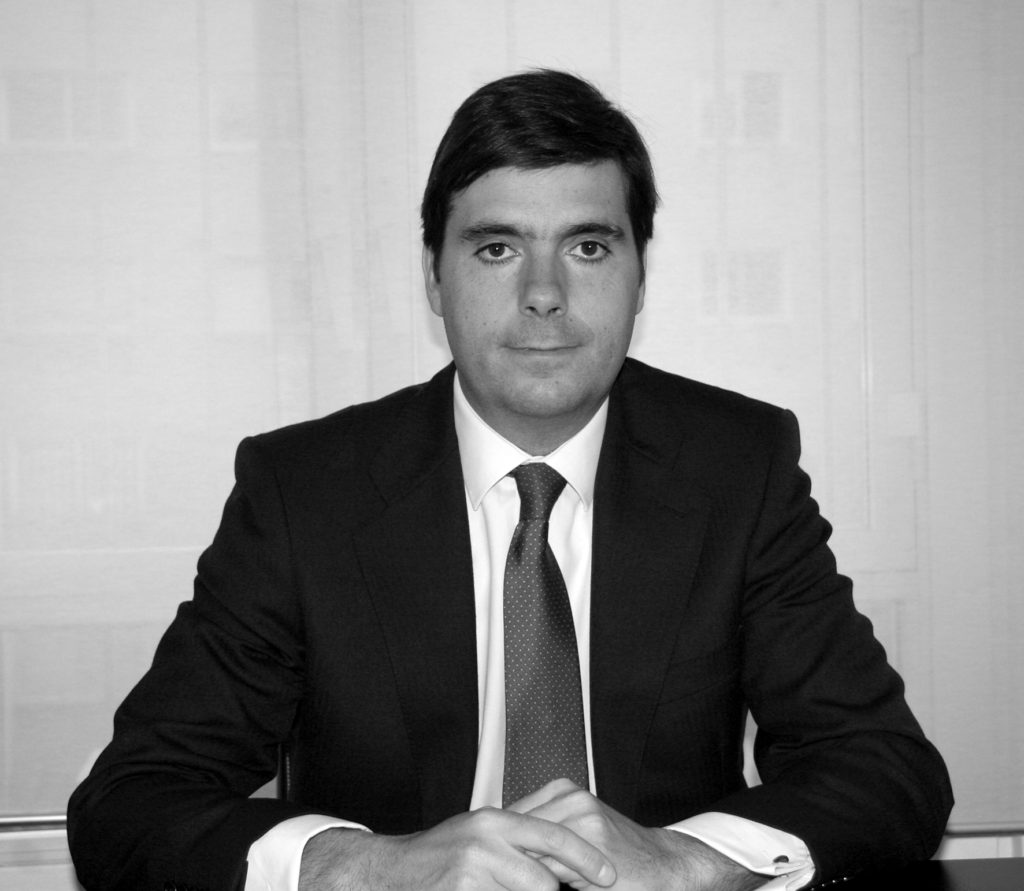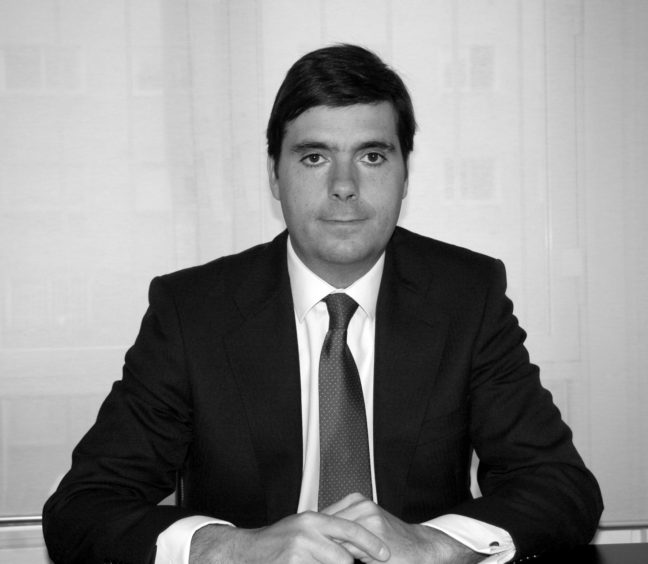TTR DealMaker Q&A with Auriga Global Investors Head of Derivatives and Alternative Investments Diego García de la Peña

Diego García de la Peña is Head of Derivatives and Alternative Investments, as well as Head of Hedging Consulting for Private Equity funds, infrastructures, real estate, family offices, and companies in Auriga Global Investor. In both activities, the aim is providing solutions for companies’ capital structures and helping them, as well as supporting sponsors to develop their business plans.
_____________________________________________
TTR: 2018 was a record year regarding Private Equity investment, how has it been in 2019? What can we expect for 2020?
D.G. P.: In 2019 all historical records were broken again in Spain with a volume of investment close to 8.5 billion euros compared to 6 billion euros in the previous year (+41% year-on-year increase), according to Ascri’s data. Furthermore, the number of megadeals (transactions over 100MM EUR) has increased from 8 transactions in 2018 to 18 in 2019. In our case, the activity has been very positive, since we have advised some of the most relevant players in the sector, such as the private equity fund MCH in the management of the interest rate riskof Grupo Palacios’ financing, or the management company ICG in the management of the interest rate hedging of Konecta’s financing.
Unfortunately, 2020 has started as a year of total uncertainty due to the situation in which we find ourselves in a global health and economic alert. Initially it was starting as a good year of investment, perhaps with volumes not as high as previous years but with a good deal flow but now we will have to see the evolution of the crisis and above all its geographical range and temporal evolution.
TTR: In recent months you have advised relevant players like Plenium Partners or MCH Private Equity, could you give us any comments about the most relevant transactions?
D.G. P.: Plenium Partners has executed several transactions in recent months, being one of the most active market participants in the renewable energy sector. On the one hand, Rewind Energy V, a company controlled by Helia Renovables, acquired Sun European Investments Eólico Olivillo, a company that owns two 53.5 MW wind farms in Jerez de la Frontera, as well as three photovoltaic plants. Auriga advised on interest rate hedging in the refinancing. In addition, Tescobor Spain, controlled by Helia Renovables, acquired San Clemente Solar Project, owner of two solar farms in Spain, which have an aggregate capacity of 10 MW. In this transaction, Auriga advised on the interest rate hedging for the refinancing of the park.
We can also highlight the purchase by Global Tholos, controlled by MCH Private Equity, Ardian, and LGT European Capital, of 100% of Palacios Alimentación in the American company Carlyle. Auriga advised MCH on the interest rate hedging associated with the financing of the Palacios Alimentación acquisition.
TTR: What sectors do you consider as more active in M&A and Private Equity in recent months and currently?
D.G. P.: One of the sectors that is experiencing a lot of activity is the renewable energy sector. On the one hand, in the parks already in operation fuelled by the new decree approved by the government guaranteeing profitability until 2031, which gives regulatory and economic stability to investors, as we have experienced on T-Solar’s portfolio refinancing of 23 PV plants deal last December. On the other hand, in the development and construction of new parks, a segment in which we are seeing many operations.
Another sector that we believe will be very active is the agri-food sector. The entry of Private Equity funds allows the consolidation of this sector which is controlled by small family businesses generally, benefiting from economies of scale. In addition, they can provide professionalization in management, organic growth or boost internationalization.
Finally, we believe that the Healthcare sector will continue to be very attractive for Private Equity, in areas such as pharmaceuticals, medical technology, hospitals and elderly care. As mentioned in the agribusiness sector, consolidation is one of the value levers, as is the demographic factor due to the ageing population or the improved efficiency of health services.
TTR: Alternative financing has definitely gained traction in Spain, what can we expect in following years?
D.G. P.: Alternative financing is seen as something normal in Spain already, both by the business sector and by the banking sector and this normalization is a very important tombstone. Companies no longer see debt funds as exclusively opportunistic source of finance and banks incorporate them as co-financiers in a wide range of operations.
In the next few years, we expect an increase in sponsorless transactions, as up to now most alternative debt operations have been sponsor-driven. With the increase of alternative financing funds present in Spain, as well as with the reduction of company size and minimum financing amounts as requisites to carry out operations, we believe that there will be a shift towards non-sponsor driven operations.
We also believe that there will be a greater segmentation of alternative financing operations between pure growth senior bullet financing in high-performance companies, hybrid debt for companies that need a mixed debt-equity solution or special situation financing.
We will have to be alert to the evolution of the crisis and the liquidity situation with which companies come out of it in order to support them in specific stress situations.
TTR: Regarding Hedging strategies for Private Equity financing and portfolio companies, what trends can you highlight?
D.G. P.: Currently, we think it is interesting to hedge with caps instead of traditional hedging with swaps, although the volatility of the former has increased significantly due to the crisis, which has resulted in an increase in premiums. Likewise, it is still interesting, in the case of hedging with swaps, to utilize forward starting swaps in order to avoid low interest rates when the outstanding capital is higher.
As for currency hedges, we are seeing greater and longer-term planning by the acquiring funds in conjunction with the financial teams of the portfolio companies, like we have experienced with Riverside in the hedging of La Galvanina deal.
TTR: We are in the midst of one of the major crises and pandemics in history due to COVID-19, right at a very good moment for Private Equity and M&A. In the mid-term, how it´s going to affect the market?
D.G. P.: We at Auriga believe that it is tremendously important to see the extension in time of the crisis at a global level. If it were a one-off problem, being it totally dramatic, but one that can be overcome in 2-3 months, we believe that the impact will be limited and recovery will be quick, although we also think that it is difficult to reach previous levels. On the other hand, if, as it seems, it is going to be a problem that extends over time because it is affecting different parts of the planet in different phases and consecutively, we believe that the consequences are unpredictable and more far-reaching.
In the medium term, we believe that it will be important for companies and financiers to have flexibility to find imaginative solutions to the liquidity and financial structure problems that will arise, in order to offer stability to the productive system.
We also believe that it will be a market that will provide interesting opportunities for those participants who have funds available but, on the other hand, it will be an environment in which fund-raising might prove difficult because investors may have a lower valuation of their assets due to the fall in positions in organised markets and, therefore, less money available in absolute value for allocation to alternative investment.
